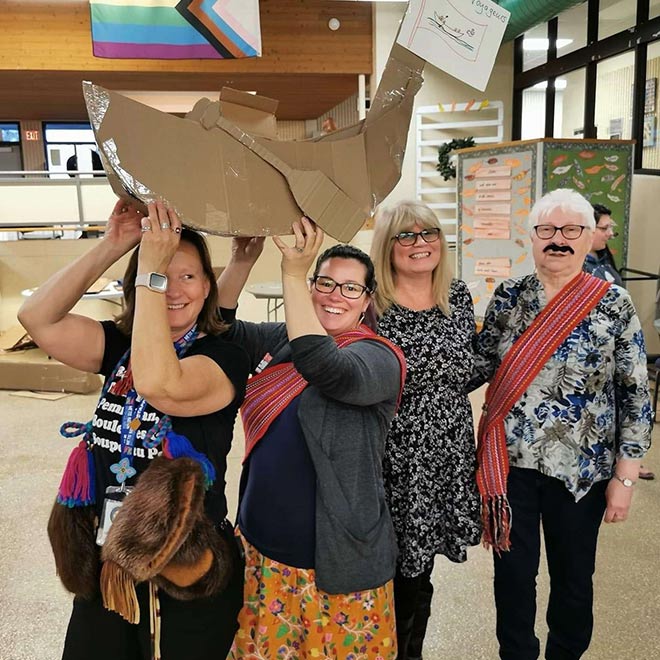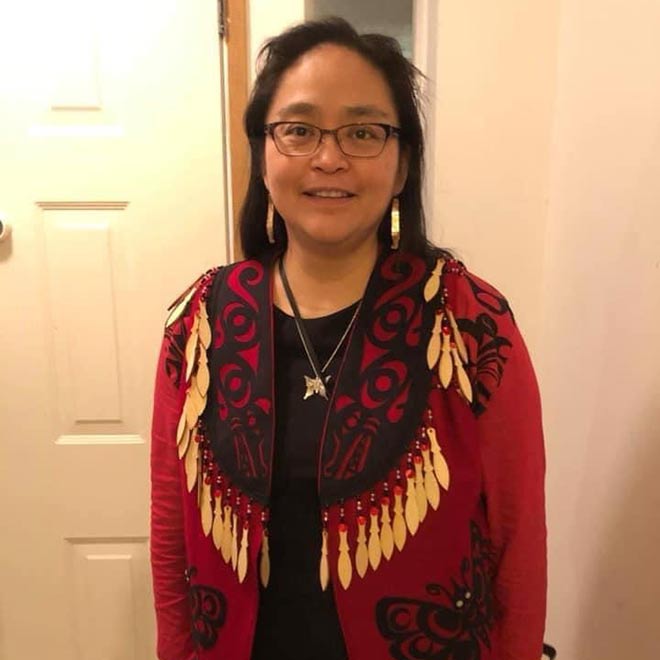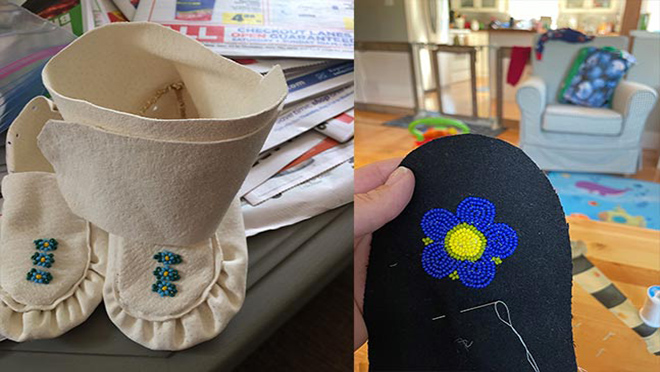Connecting with our employees about culture and tradition

Celebrating Indigenous culture
On June 21, we mark National Indigenous Peoples Day. This is a day for all Canadians to recognize and celebrate the unique heritage, diverse cultures and outstanding contributions of First Nations, Inuit and Métis peoples.
As part of our celebration this year, a few of our Indigenous employees have graciously shared their stories with us.
Sydney Cook, Field Services Administrator
Growing up, I always knew my family was Métis. My Nana grew up practicing our culture and speaking Cree in Manitoba. However, we didn't engage in any cultural activities when I was a child, and because our heritage wasn't celebrated, I tried to deny who I was.
As a teenager, I moved to the Northwest Territories, which completely transformed my perspective. There, Indigenous culture is deeply woven into daily life, and witnessing its prevalence and celebration awakened a desire in me to reconnect with my roots.
Today, I am actively engaged in learning and celebrating my culture. As a member of the North Island Métis Association and the Métis Nation of British Columbia (MNBC), I participate in events, language classes, and cultural learnings. I am learning Michif, our traditional language, which has two dialects: Heritage Michif, incorporating more French, and Northern Michif, with more Cree influences. Online resources and community groups support my language journey, and I am eagerly anticipating a Northern Michif class from the MNBC.
My children join me in this cultural revival, learning alongside me. We use traditional plants and medicines, and they participate in language classes. My children's pride in their Métis identity brings me immense joy. This journey of reconnecting with my roots is enriching our lives and strengthening our bond with our heritage.

Robin Nahanee, Indigenous Professionals in Development
I'm Coast Salish, and I grew up practicing my culture from childhood. I'm very grateful to my Elders and ancestors who kept our practices alive underground during the years of the Potlach ban. But there were times over the years when I was ashamed to be Indigenous because of racism I experienced, and I had to learn how to walk a fine line between practicing my culture and living in the outside world. It's great to have one day to recognize Indigenous people, but now I celebrate being Indigenous every day.
My culture helped to define me as a person as I was growing up. At the age of seven, I was given an ancestral name. Ancestral names are a big responsibility in our culture because it means that your actions don't only reflect on you, they reflect on your parents and ancestors. You might have a name that belonged to a person who was highly respected. We all have our own shoes to fill, but we have to live up to high standards. A lot of people will use their ancestral name when they're out in the community because it's a connection to the family and community that they come from.
I attend cultural ceremonies within Coast Salish territories throughout the year, but the ones I love to attend are the winter cultural ceremonies. They take place starting in September and go through to April, and they could be a traditional naming ceremony or a memorial which typically takes place about four years after a loved one has gone.
Each ceremony is unique, and there are sacred traditional aspects to it. People from the entire community will gather and you could have 800 to 1,000 people together at a memorial, for example. I've travelled to ceremonies all over the Coast Salish territories and you get to see familiar faces over time. You see the same people from your community throughout life, from start to finish. It's nice to be able to travel with a group that will be there with you to the end.
I've been at BC Hydro for one year now as part of the Indigenous Professionals in Development Program. Since I've been here, I've jumped in with both feet, stepping out of my comfort zone and doing a lot of firsts. I was able to help with hosting the performers for National Indigenous Peoples Day last year, and I'm stepping out of my comfort zone again this year to help emcee the event.
It's so important to take those opportunities to try new things and share who you are. How will people understand why I am the way I am if I don't share my story?

Lisa Cyr, Indigenous Relations coordinator
To me, National Indigenous Peoples Day is a chance to share our culture and traditions with the rest of Canada. It's a great opportunity for us as Indigenous people to showcase who we really are and how open we are to other people joining us and celebrating our culture. There are so many stereotypes out there about Indigenous people and culture and when we take the time to learn, it helps us to move past them.
I'm from the Pasqua First Nation in Treaty Four territory in Saskatchewan. Our culture and language were compromised in the past and many of our youth grew up not knowing our language. We were fortunate enough that there are some Elders who have kept up our Cree and Saulteaux languages, and people are starting to learn them again. Our practice of pow wows has also been revived and they're bigger and better than ever. There are diverse people from all walks of life attending those events and enjoying them, which is great to see.
Now that I live in the Lower Mainland, I take my grandchildren to the celebration for National Indigenous Peoples Day which usually happens at Trout Lake. We talk to them about our culture, teach them what we've been taught to make sure that those traditions, cultures and values are carried on. I have a grandson who wants to learn to speak the Cree language and we found an app for him to use to learn. It's amazing the tools that are available now with technology to preserve and pass on language.
It's nice to see so many Canadians trying to learn and understand Indigenous people. Truth and reconciliation are slowly moving forward in our country. Even though that movement is small and slow it's nice to see because for so long there was none. I see it not just in corporations like BC Hydro, but in conversations I have with people in my everyday life. This day is a chance for all of us to reflect on how we can make change together.
How will you celebrate?
Here are some options for you to celebrate and embrace Indigenous culture this month.
Attend an event
- June: Celebrate National Indigenous History Month with the spirit of Skw̲xw̲ú7mesh and Líl̓wat7úl at the Squamish Lil'wat Cultural Centre in Whistler.
- June 7-9: Okanagan Indian Band hosts the 2nd annual Komasket Powwow
- June 15: Sncǝwips Heritage Museum hosts the Siyaten Festival in West Kelowna
- June 21: K'ómoks First Nation hosts theK'ómoks Festival, a National Indigenous Peoples Day event in Courtenay
- June 21: The City of Burnaby hosts a National Indigenous Peoples Day celebration at Civic Square
- June 21: The City of West Vancouver hosts a National Indigenous Peoples Day celebration in Ambleside Park
